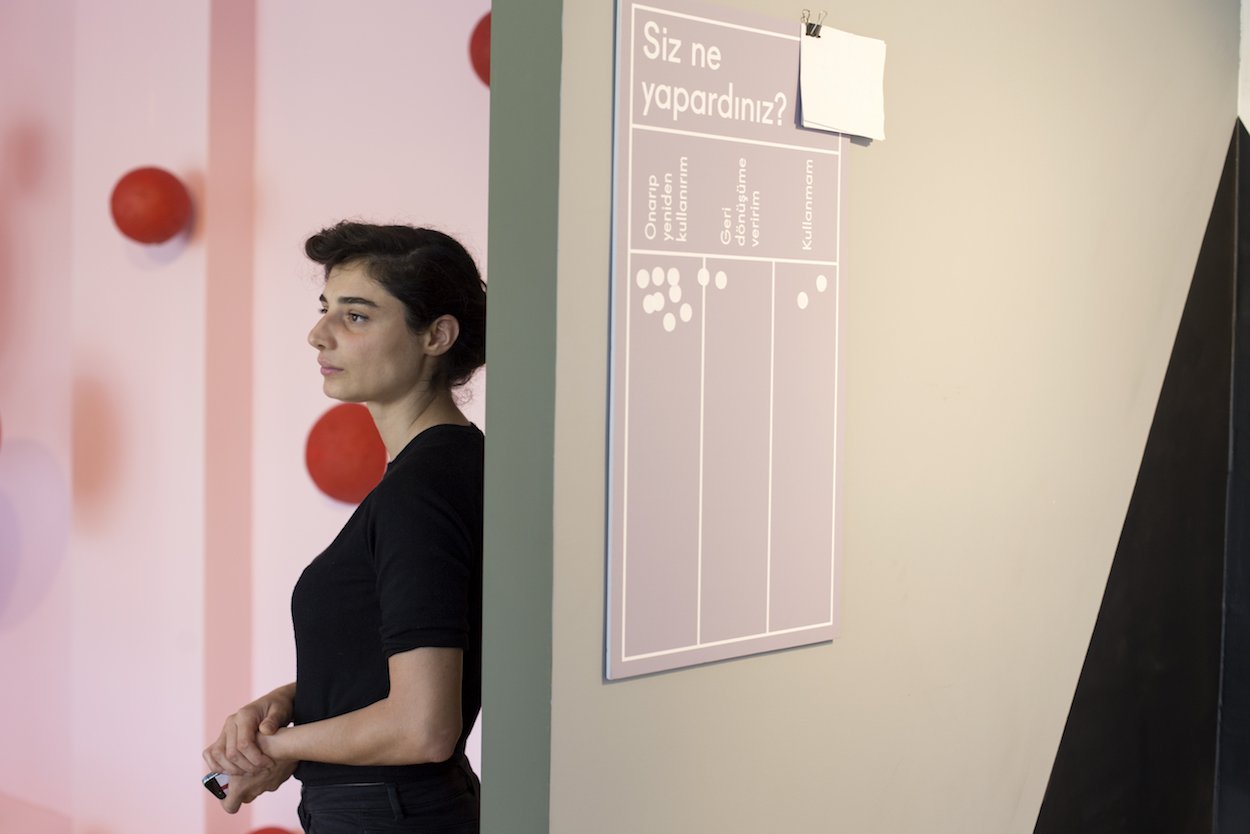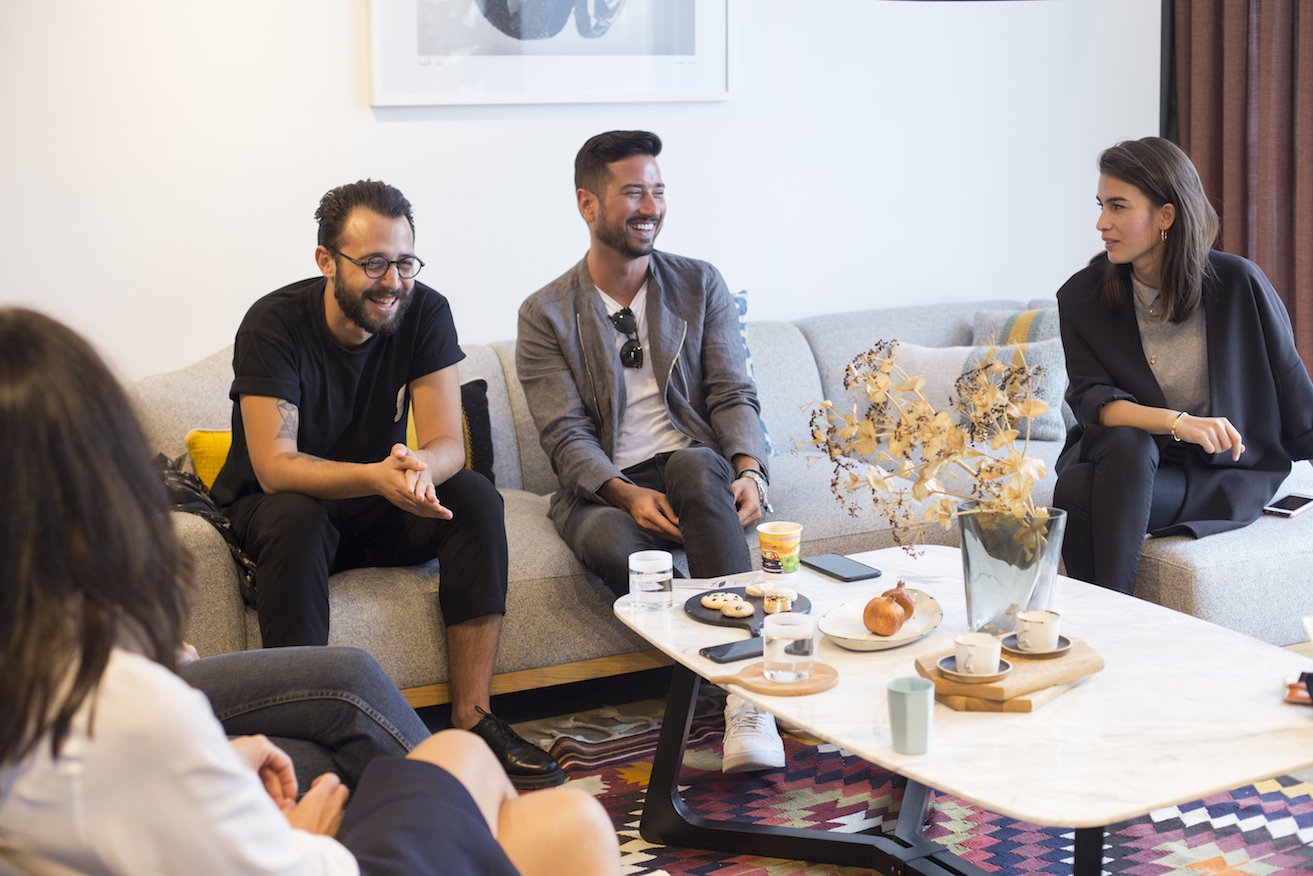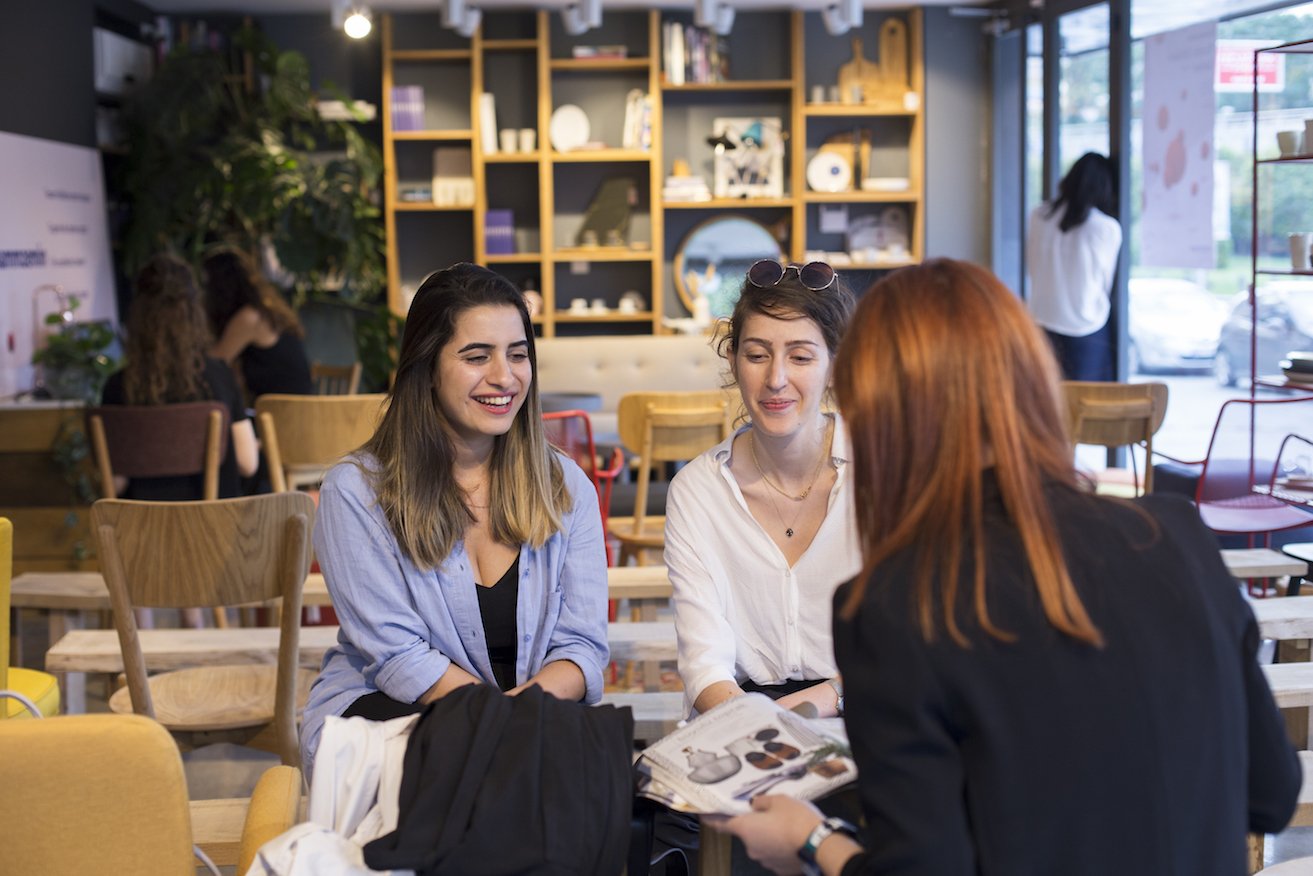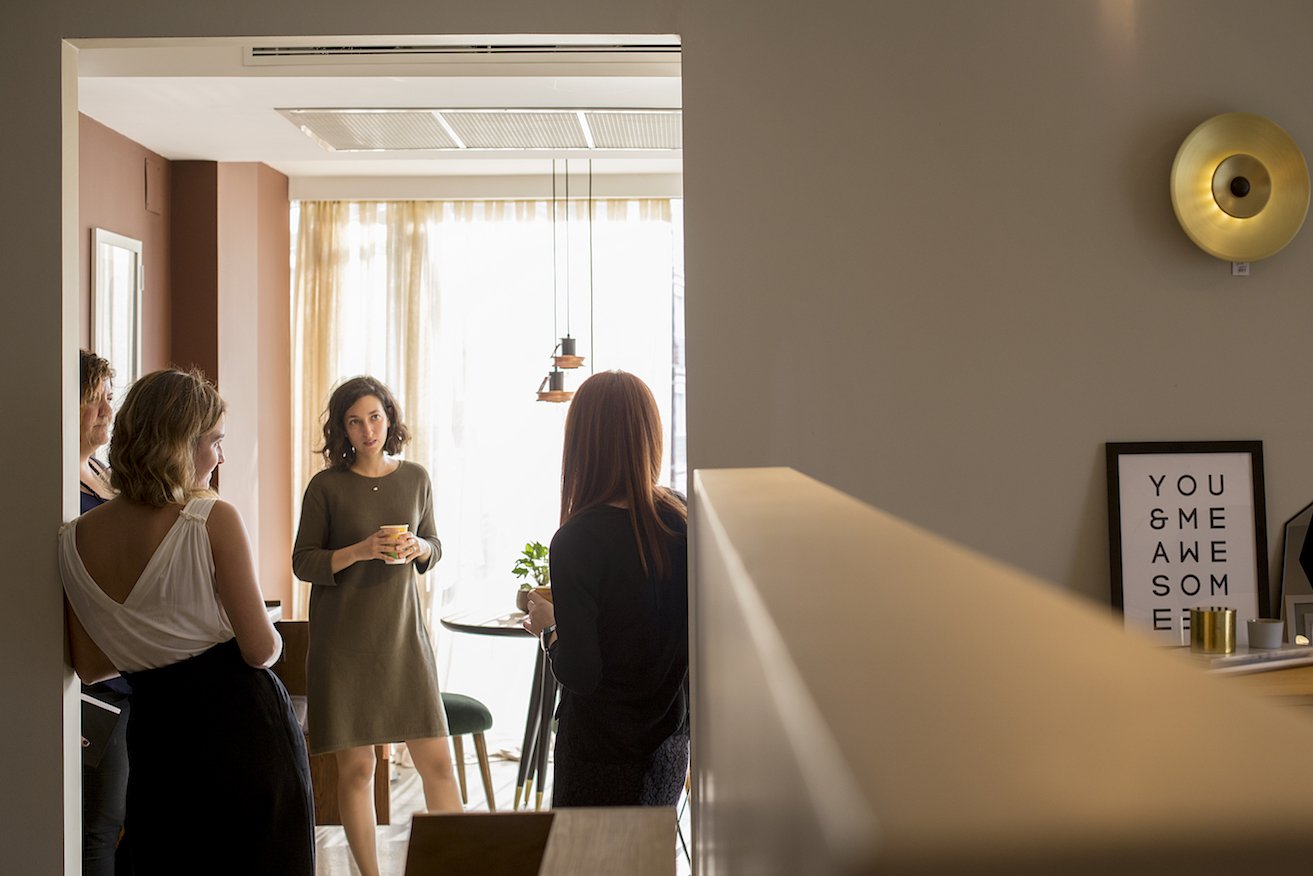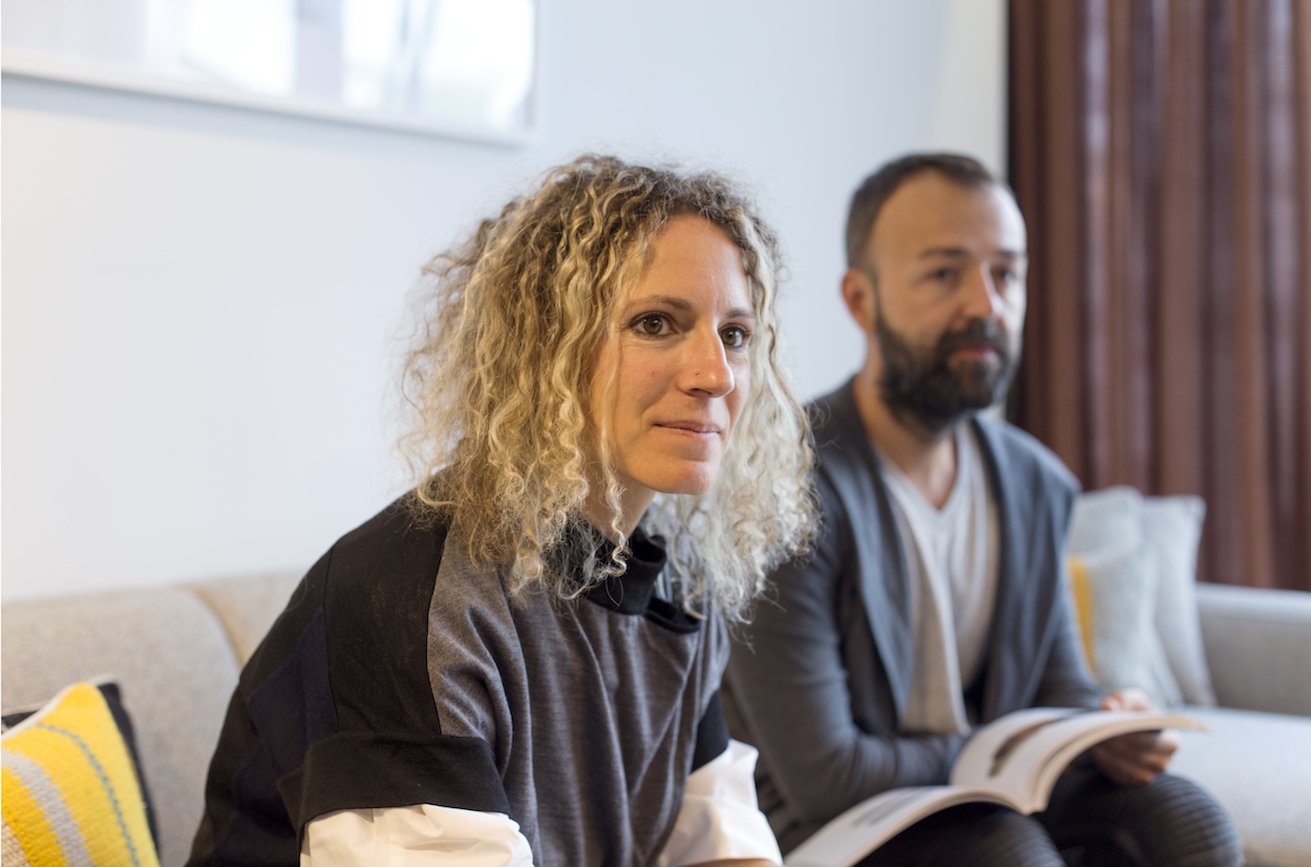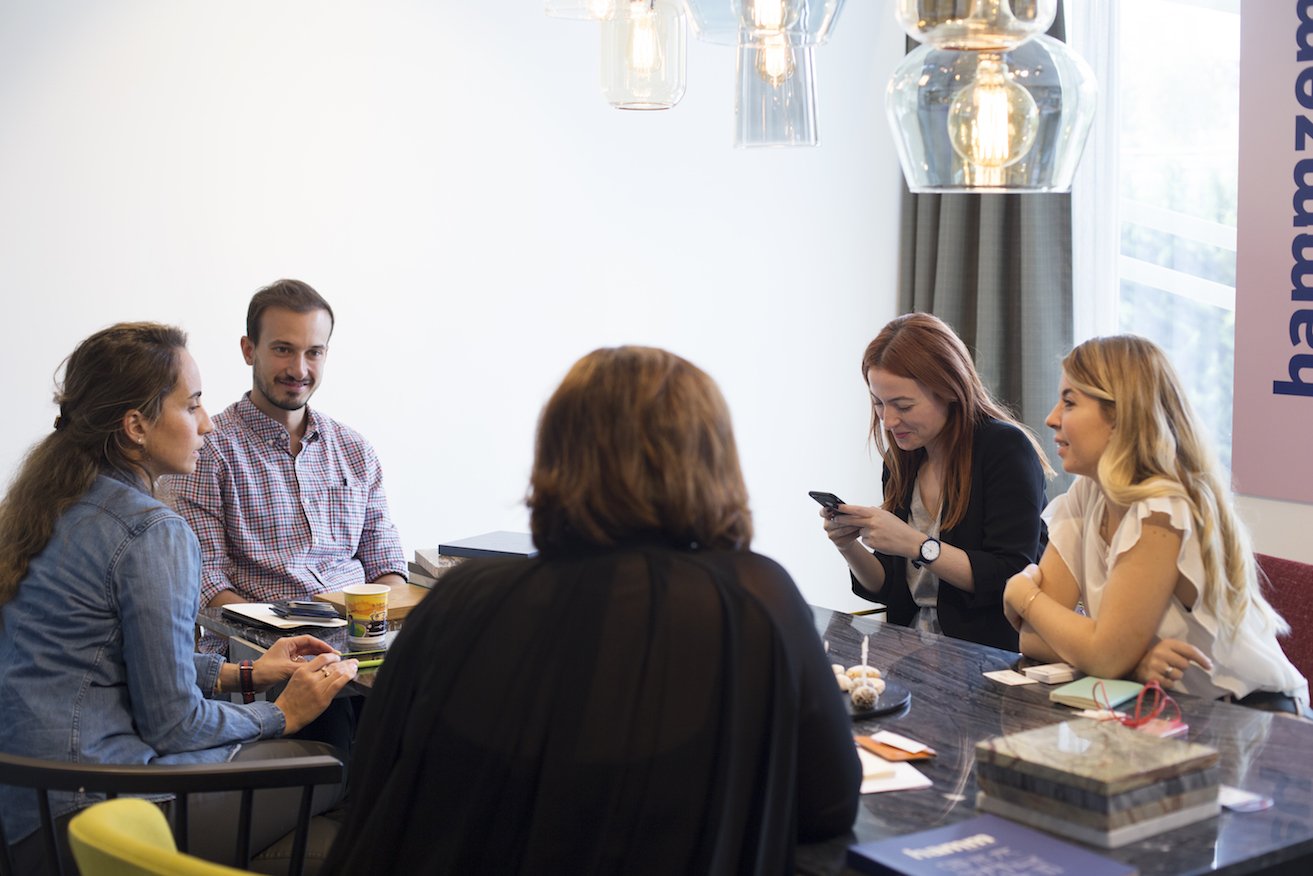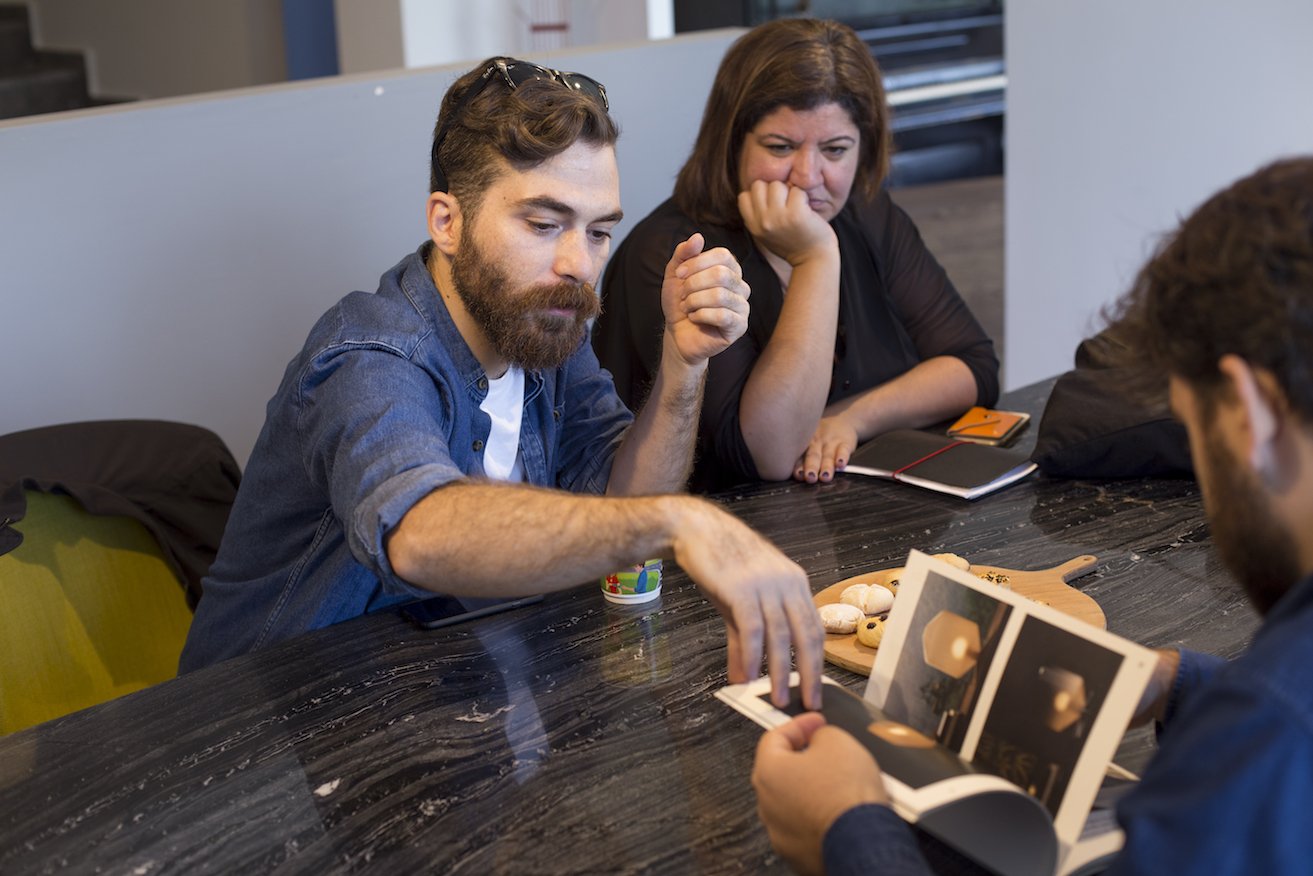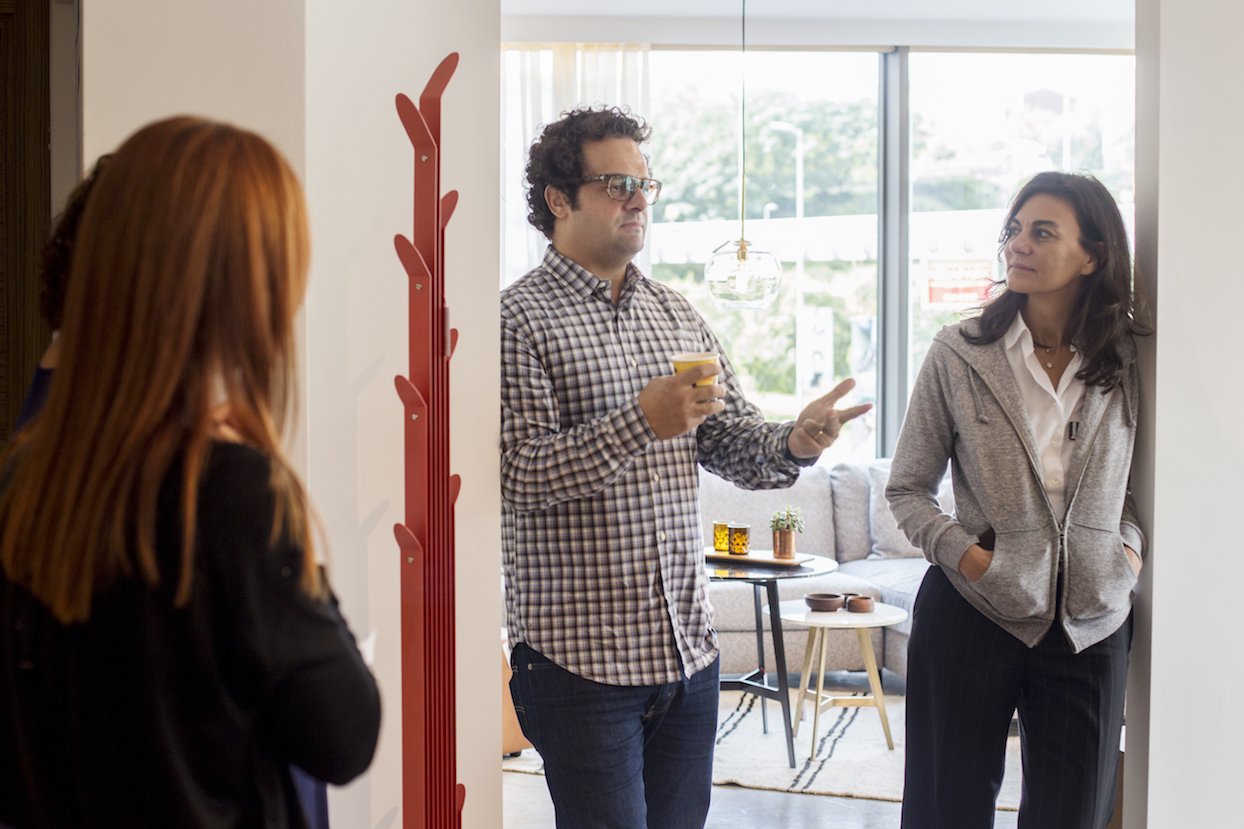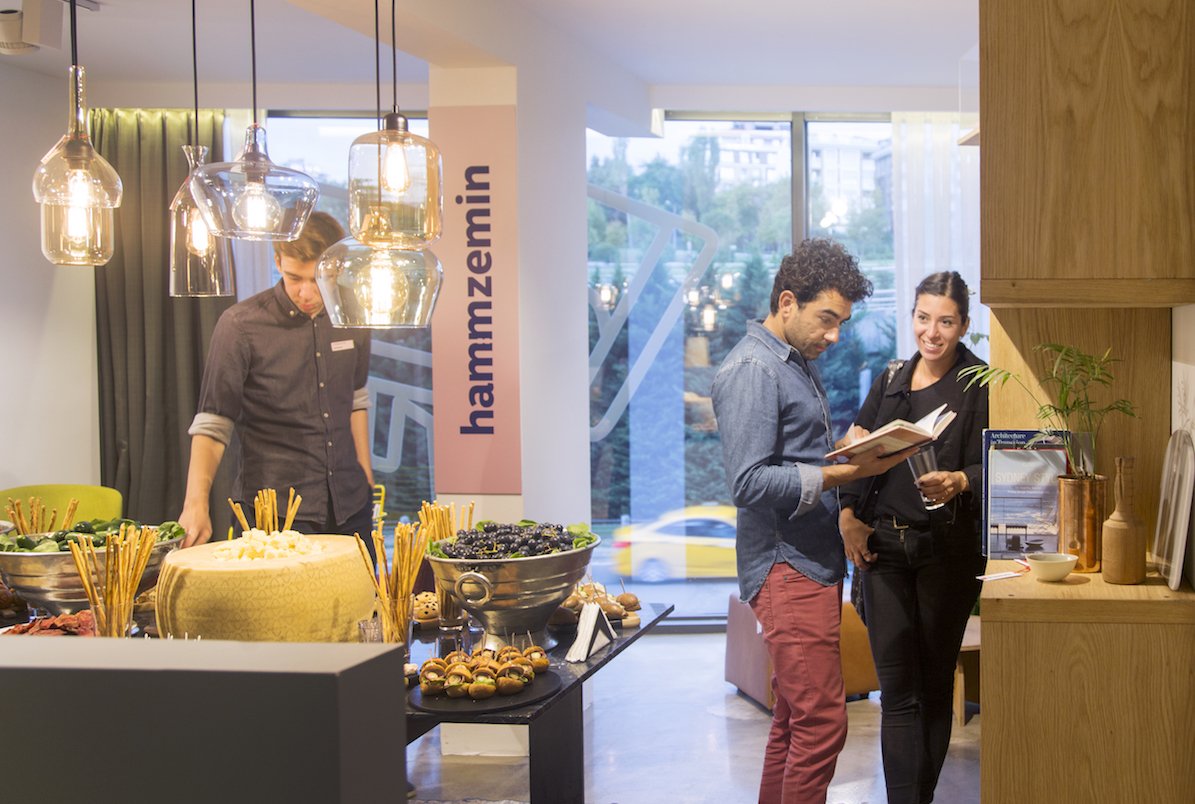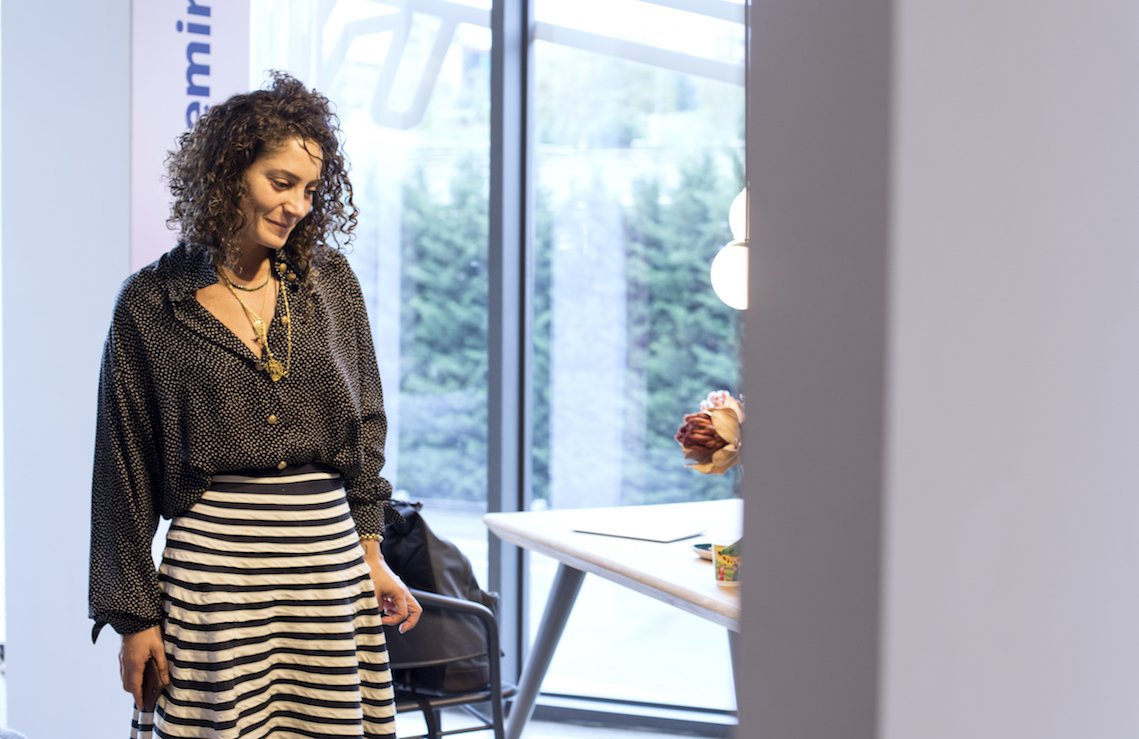The first of the ham:mzemin Creative Interaction Series, which we curated, took place on September 27-28 with the events of 'zemin/friends', 'floor/workshop'. On the last day of the event, the concept of heritage today was discussed through our common past in the panel moderated by Banu Uçar and Nevzat Sayın, Sevil Dolmacı and Ayşin Zoe Güneş as speakers.
'ham:mzemin', whose mission is to lay the groundwork for the design culture; aims to bring together individuals, institutions, entrepreneurs and foundations working in creative fields through different activities. Designed as an interaction channel, ham:mzemin pioneered the creation of organic areas of influence by creating different synergies with zemin/friends, zemin/workshop, zemin/panel titles on September 27-28.
In this first event, ham:mzemin was fed by the design approach of the Ham:m brand that supports local production and appeals to future generations. Moving out of single dialogues and with the aim of creating values nourished by multiple interactions, this formation also aims to create a personalized model for creative communication.
zemin/friends
Within the scope of the event, opinion leaders, creative profiles, academics, representatives of non-governmental organizations and entrepreneurs gathered under one roof at the Bomonti ham:m Plus Store under the title of zemin/friends. Aiming to be collective at every stage from the idea to the production process, ham:m pioneered the formation of new collaborations by inviting its stakeholders and individuals with whom it interacted, curated by in-between.
zemin/workshop
Alp Şerif Besen, Aygül Çınar, Elif Sönmez and Enes Gucyener from Istanbul Bilgi University, Bahçeşehir University and Beykent University Architecture Faculties designed the 'ham: kitchen' concept as part of the floor/workshop under another title of the event. Focusing on the product's life cycle built on the process, the team transformed one room of the Bomonti ham:m Plus Store.
In order to witness the backstage of the final product, the students visited the wood, lighting, flooring and glass workshops where Ham:m produces and took recordings of this process. These recordings were included in the exhibition area, resulting in two short films focusing on the production process.
ham:kitchen; “The process of the product should be exhibited in a way that appeals to all senses by the person witnessing this process. This witnessing will make the fiction realistic” was designed and exhibited as a space showing the life cycle of the product, which is the beginning and the end – birth and death. This exhibition, which the audience also participated in, ended with a survey that included the options of repairing, recycling or not using the product.
zemin/panel
Ayşin Zoe Güneş, Nevzat Sayın and Sevil Dolmacı participated as speakers in the panel moderated by Banu Uçar. In the panel focusing on the theme of 'heritage', new perspectives were presented to the concept of memory, which is nourished by our environment and our daily lives.
Banu Uçak opened the panel by giving examples from her personal experiences within the framework of the heritage theme. Uçak, who said that we can no longer find the house or street where we were born and passed our childhood in the same place and in the same way; “Not only does nothing change, but everything changes rapidly. When we do not know the past, we cannot see what has changed, and we cannot oppose the change that we cannot observe. The reason for the change is that the past has no value for anyone," she left the word to Nevzat Sayın. Nevzat Sayın started by talking about the how past tense of languages is rich; the poor the future tense and the future.
“Is it ingenuity to belong to nowhere, not to have an address? Today, we do not talk enough about traditional architecture and antiquity in architectural education. New things, parametric designs are tried to be made in schools, but students are unaware of the value of old techniques. When we do not know the past, we do not understand what has changed. The lack of interest and curiosity makes people uninterested and insensitive.” Sayın said, continuing his speech as follows. “Not knowing does not increase curiosity, one's curiosity increases as one knows. Curiosity is possible by collecting and owning it. Since we do not have a common past, separation is so easy. The problem is geography, not history. What matters is what happened in that land."
Nevzat Sayın, Banu Uçak
Ayşin Zoe Güneş, who mentioned that rapid change causes great losses, said that besides the traditional architecture and antiquity mentioned by Nevzat Sayın, she thinks that people generally do not live by curiosity.
We observe the rapid change in the values we connect with when we were little or at some point in our lives, and we protest to prevent them. But is protesting enough? While we're trying to keep it from being demolished, why don't we suggest it be converted to something else?" Says Güneş: “Everyone thinks that the best is their own idea, and they demolish it and rebuild it for them. Can't it be efficiently transformed rather than destroyed?"
Ayşin Zoe Güneş also said, “What and how long can you protect in such a stratified geography? How curative is what we're trying to preserve, whatever it is?" In his words, he emphasized that the reason why Turkey does not have a common history is that the population has constantly changed.
Ayşin Zoe Güneş, Sevil Dolmacı, Nevzat Sayın
Sevil Dolmacı started her speech by sharing the observations she made by blending her art history and academic background with her commercial experiences. Dolmacı: “How do we position art in our subconscious? Families with high purchasing power in the art category continue with Devrim Erbil's Istanbul series, followed by Ergin İnan and Burhan Doğançay. Maybe they will definitely buy Adnan Çoker's Dome.” Stating that he is interested in the stories that are in the minds of a wide range of buyers, Dolmacı said that the source of this is connecting with his past and seeing Istanbul. Stating that the story behind the fact that Turkish collectors who buy from abroad always prefer Peter Halley is Islamic forms, Dolmacı emphasized that the reason for these purchases is the subconscious.
Banu Uçar told about a memory she had with Frank Gehry and mentioned that the lack of a collective past perception is our main problem.
“When Frank Gehry came to Istanbul to build an opera house with his students from Yale University, he told me that he needed a book that included the parameters of the places where classical Turkish musical instruments take place. He was horrified that I had no idea about it, and I was horrified that I didn't know.” Banu Uçar talked about the lack of facts that everyone would agree on and asked, "Do we have a common past?" questioned.

